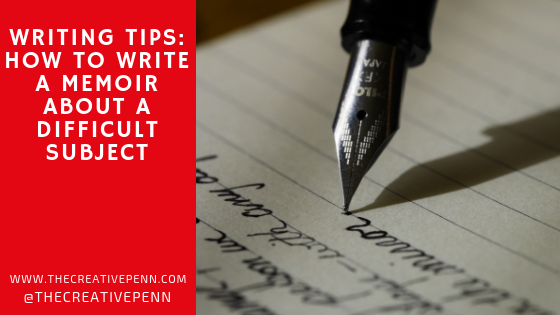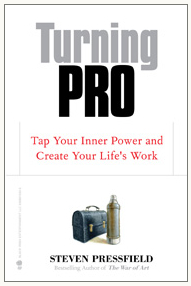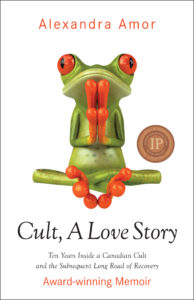Memoir is one of the most powerful forms of writing. It can change your life – and go on to change other people too.
 I've incorporated aspects of memoir into many of my non-fiction books, sharing journal entries and experiences from my own creative journey.
I've incorporated aspects of memoir into many of my non-fiction books, sharing journal entries and experiences from my own creative journey.
It's scary to put yourself out there, but your personal experience is often what touches others.
In today's article, Alexandra Amor shares her tips about writing memoir based on her award-winning book about living in a cult.
Art connects us.
It reminds us that we are not alone. It reflects to us that we have so much of our human experience in common with others.
In other words, art enables us to say, “Me too. I’ve felt that.”
This is why art matters. And it’s why what you write matters, whether that’s fiction, blog posts, tweets or screenplays.
Memoir, in my opinion, is one form of art that is more overt about offering connection to our fellow human beings. We tell our personal stories in memoir to inform, educate, and perhaps even to assist others.
When we are writing a memoir about a difficult subject, we are in the unique position of having a dual responsibility to ourselves and to our readers. This article it going to share some tips and strategies about how to carry that responsibility in a healthy and constructive way, one that is good for both you and your readers.
First, let’s define memoir so we’re on the same page
Memoir is not the same as autobiography, which is the retelling of someone’s entire life. Memoir is about a certain time, event, or experience in a person’s life. There is a unifying message, theme or purpose to the telling. A memoir can span several years, but it limits itself to focusing on the subject of the memoir during that time.
Memoir is an interesting paradox of internal focus on the writer, and then outward service to the reader.
 My experience as a reader has been that many authors of memoir do not understand this. They see memoir as a series of journal entries offered in a linear way; “This happened to me and then that happened to me.”
My experience as a reader has been that many authors of memoir do not understand this. They see memoir as a series of journal entries offered in a linear way; “This happened to me and then that happened to me.”
Boring! And that kind of story doesn’t serve the reader at all. If you’re writing a memoir, try to avoid this.
Just as with fiction, the main character (i.e., you) should go through some sort of change. The events you’re retelling undoubtedly changed you. Without exploring that change you’re going to lose the reader’s interest.
The element of change that the ‘protagonist’ goes through is especially important when you’re writing about a difficult subject. Otherwise, you’re just creating disaster porn.
Memoir can and should use the same story elements as fiction, with surprising twists and turns, climaxes, a good beginning hook etc. A memoir that simply rambles along, telling ‘the story of me’ for 300 pages serves no one.
As mentioned above, when we write a memoir about a difficult subject we have two responsibilities. One to ourselves, and the other to the reader.
Let’s talk about you first.
Going Inward
When you’ve decided that you want to write a memoir about a difficult experience or period in your life, you’ll want to forget about the reader and focus on yourself first. This is the time to be indulgent with your feelings and your truth about what happened and how it affected you.
Just as with writing fiction, your first draft can and should be as messy and disorganized as it needs to be. This is the draft you will never, ever share with anyone, so just let it all hang out, knowing you can turn it into a coherent narrative later.
There is no question that by writing a memoir about a difficult subject that you are going to feel uncomfortable. You’re likely going to touch on memories that you haven’t felt in a while. With that in mind, here are some tips for the writing process:
1. Do your healing work first
Writing is an excellent form of healing, and goodness knows many of us would not be the people we are today without our journaling practices. That is certainly true for me. (If you haven’t already listened to this episode of the Creative Penn podcast with Ellen Bard, she and Joanna dive deep into using writing as a form of healing.)
However, if you’re writing about a difficult subject, I recommend that the writing of the book itself not be your initial healing practice. Sure, you’ll likely see things in a new way while you’re writing (I certainly did) or come to a greater understanding of your experience, but the actual healing work should be done before you sit down to write a book about it.
2. Are you ready to share honestly?
It’s a strange feeling to have a book out in the world that contains intimate, sometimes embarrassing details of one’s life. If you’re not ready to be honest with your readers, then set the idea aside until you are ready. You’ll know when that time comes.
 It will still be scary at moments, but you won’t feel you’ve violated yourself by sharing.
It will still be scary at moments, but you won’t feel you’ve violated yourself by sharing.
Not that you need to share every single article of your dirty laundry, but memoirists do have a responsibility to be honest with their readers.
Remember what I said about memoir being about change? If the reader can’t see how and why you were changed by the events outlined in the memoir, they’re going to wonder what the point of the story is. Those moments of change will be visible to the reader when you’re able to be honest, warts and all.
3. Don’t write your memoir if what you are looking for is revenge or sympathy
As I’ll say several times in this post, your memoir needs to serve the reader. If it is serving anything other than that (like your need for validation or to prove yourself right) then simply keep writing in your journal and keep healing.
The day will come when you’ll feel yourself tip over into a willingness to let go of your own needs for validation and/or justification and focus on the needs of the reader.
4. As with writing fiction, let your first draft be as rough as it needs to be

There’s no need for perfection right out of the gate. And when it comes to writing about a difficult subject, the writing might be rougher than you’re used to, if you’re a practiced fiction author.
That’s okay. Let your story come out and be as messy as it needs to be. Remember that a) you can’t fix a blank page and b) you’ll have as much time as you need down the road to mold your draft into a book.
5. Note that there may be times when you need to take a break from writing the first draft
And that’s okay too. Treat yourself very kindly during this process. You’re likely dealing with deep emotions and possibly things you haven’t thought about in a long time.
I remember that several times while writing the first draft of my memoir about ten years spent in a cult, I would be writing a painful scene and many strong emotions would come up. I’d be sitting on my couch with my laptop on my legs, and I’d have to give myself a moment to let those emotions wash through me. I’d sit and sob over the keyboard, feeling the hurt and grief of the time I was writing about. Eventually, the wave of feeling would pass. I’d mop myself up, have a glass of water, and carry on.
If you find this sort of thing is happening too often or is too painful for you, take a break. Set the book aside and come back to it in a few weeks or months when you are ready.
Turning Outward
When your first draft is done and you are ready to begin to take it from organized chaos to something useful, this is the moment to recognize that you are taking off the hat of the person who had the experience you are writing about, and putting on your professional author hat.
At this point, the book is becoming something that is no longer for, or even about, you. It is now becoming something for your readers.
 This requires a somewhat ruthless approach to shaping the story from something deeply personal that has been for your eyes only into something that will inform and educate others.
This requires a somewhat ruthless approach to shaping the story from something deeply personal that has been for your eyes only into something that will inform and educate others.
I bumped into someone recently who is writing a memoir about her experience escaping from an abusive marriage. The manuscript that she is shopping around to publishers is currently 800,000 words long.
That’s not a book for readers to consume. That’s a catharsis.
I applaud this author for writing down all that pain. I’m sure that work was incredibly healing and helpful for her. But I could tell that she was really struggling to make the switch from first draft mindset to author mindset. She insisted that every word of what she’d written was necessary and must be left in place.
Were those words necessary for her process and healing? Yes, absolutely, and good for her for doing all that work.
Will all those words be necessary for her audience? No.
Here then are a few tips for the revision process:
1. The self-indulgence stops here
Now that you’re taking your writing from draft to book form, you’ll find there’s a razor sharp line between telling the truth and being indulgent. If you notice that you’re unable to make this switch, then leave the book alone for a time.
2. Once again I say, you must be willing and able to serve the reader
When we write a memoir about a difficult subject, it is not only difficult for us, it will likely be difficult for the reader as well.
Someone who picks up a book about living with bipolar disorder, for example, is likely either having that experience themselves, or knows someone who is. Your job as the writer in that situation is to serve the reader by being informative and truthful without being self-indulgent.
This is not an easy line to walk and you may find you struggle with it more than you do when you’re writing fiction. Keep going. You will be able to find the right way to balance these elements.
3. Be VERY careful about choosing an editor
This is one painful mistake I made. Without realizing what I was doing (my memoir was my first book) I choose a story editor who had very little sensitivity and who was more interested in stroking her own ego than helping me shape my draft into something valuable for readers.
Look for an editor who has experience with memoir. Also, try to find one with whom you feel you have a good personality fit.
If you are an experienced author you may have editors you already work with, which is fantastic. But if you don’t, take some time at this stage and proceed with caution. This book is so personal and close to your heart that ideally, you want someone with a very skilled hand to help you.
A Caveat
You might not be able to do it. I don’t mean that as an insult but as a piece of advice.
 If you start writing the memoir of your difficult experience and find it’s just too painful, and/or you feel too close to the story to be objective and serve the reader, set it aside. You can always come back to it in a year or three years or a decade.
If you start writing the memoir of your difficult experience and find it’s just too painful, and/or you feel too close to the story to be objective and serve the reader, set it aside. You can always come back to it in a year or three years or a decade.
Sometimes we’re just not ready to take a painful or difficult experience and turn it into something useful for others. That’s okay. There’s no rush.
Also, if you’re causing yourself pain by writing the story, don’t do it. There will be a tipping point when you do feel objective enough about the experience to write about it for others. But if you’re not at that point yet, don’t force it.
Please don’t re-injure yourself by pushing yourself and your book into being when neither of you is ready.
The Rewards
I receive more feedback about my book about my cult experience that any other book I’ve written. I still get emails from people thanking me for writing it, nearly ten years after it was published.
A memoir about a difficult subject can be an enormous gift to the people who are in the same, or similar, position you were in.
Remember what I said at the outset of this post? Art connects us. Writing your memoir can be healing for you and for others. It is a sacred gift to be able to be honest about your experience so that others might benefit.
Just remember to take care of yourself while you’re doing that.
Have you ever considered writing a memoir about a difficult time in your life? Please leave your thoughts below and join the conversation.

 Alexandra Amor is the author of an award-winning memoir about ten years she spent in a cult in the 1990s. She is currently writing a series of mystery novels set in frontier Canada. For a limited time, you can grab your free copy of the first novel in this series that readers are calling ‘exquisite’ and ‘difficult to put down’ at AlexandraAmor.com.
Alexandra Amor is the author of an award-winning memoir about ten years she spent in a cult in the 1990s. She is currently writing a series of mystery novels set in frontier Canada. For a limited time, you can grab your free copy of the first novel in this series that readers are calling ‘exquisite’ and ‘difficult to put down’ at AlexandraAmor.com.
[Fountain pen image courtesy Aaron Burden and Unsplash. Reading photo courtesy Fabiola Penalba and Unsplash. Hearts photo courtesy Debby Hudson and Unsplash. Create mug photo courtesy Nathan Dumlao and Unsplash.]


Wonderfully said, Alexandra. And yes on all counts! I’m a memoir and nonfiction book coach and you’ve nailed a lot of the big pieces I see so many writers struggling with. One of my favorite things to do is help clients create a safe space (and container) for their writing so that they can navigate difficult topics and emotions as safely/compassionately as possible. Getting the right support can make a world of difference.
As you said, it’s critical to have some kind of clear transformation at the heart of a memoir, and I love the clear path you chart through the memoir-writing process here, from writing that first draft (which is usually more for the writer) to making sure the
second draft is for your reader.
Your memor, Cult, A Love Story, looks fascinating and I wish you all the best with it!
Warmly, Tanja
Thanks so much, Tanja!
Thank you so much for your helpful hints and comments. You hit the nail on the head! I am writing a memoir entitled Goldstream Valley Girl, about the difficulties growing up in the Goldstream Valley, outside of Fairbanks, Alaska and my struggles with bi-polar disorder.
I hope your memoir does well!
All my best,
Lenita
Thank you so much, Lenita. I’m very happy you found the article helpful. Good luck with your memoir – it sounds fascinating!
So, there’s nothing in it for the writer? It’s all about the reader’sneeds? Then, everyone who writes a memoir does it for purely altruistic reasons? Maybe it’s just me, but I find that hard to believe, and I have always been a very giving person. Please enlighten me.
Otherwise, I enjoyed reading your article. Thank you.
Hi Jeffrey,
This post is focused on the reader, but absolutely there are many rewards in memoir writing for the writer.
A 😉
Thank you. I related to so much of your article. I did a first shitty draft of 68.000 plus words. Im going into my 2nd edit stage now. It feels far less daunting and emotional the second gime through. It feels alike fiction now.haha.
Wow! Good for you, Michelle, for taking another crack at it. 🙂
Thanks for writing this. It’s great timing.
I wrote a book about my personal and professional journey with a chronic illness. The manuscript was finished in 2001. I approached a number of publishers, tried to get a literary agent and finally shelved the book. Just recently I took the plunge to edit it and revise the book. Needless to say there are areas to revise.
However, now that I re-read the manuscript, I realize that I have gaps of certain details that definitely impacts on my health. Meaning I left out info as I did not want to have problems within my profession. Now I wonder whether to put it in and if so, how to do so without creating a problem. I would not name anyone, but e.g. discrimination in the workplace was an issue. It’s one that anyone with a chronic illness needs to know about. However, how do i write this without creating a problem?
Hi Shoshanah, First congratulations on going back to your manuscript and picking it up again.
Not upsetting people when we write a memoir is such a huge consideration. Usually people are concerned about upsetting family, but as you point out, our co-workers can be an issue as well.
A couple of things come to mind. You could publish the book using an author name other than your own, i.e., a pseudonym. You would still have all the same access to marketing avenues when using a pseudonym, but it would protect your anonymity somewhat.
You could also consider changing details in the book related to your workplace – disguising it, in other words – in a way that would enable you to still get the same message across, but would make the workplace unrecognizable to the reader.
I don’t know the specifics of your story and where you work but I’m sure there will be ways to alter your story, while retaining its authenticity, in order to get your message across without ruffling too many feathers.
Good luck!
A 😉
Hi Alexandra,
You have some great advice on this post. My first draft was an autobiography and looked like a phone book with completed. I made the decision to divide it into three memoir books. I had three major areas I wanted to share, each had their own impact on my life. Ironically my first release was in my opinion, was poorly written, yet to date, it is the one that consistently sells. My last book released last May took off quickly and then the sales died. Perhaps the few readers are telling me something, because I get no reviews. The ones I have are good but represent less than one percent of the sales. After a long introduction, my question is how do you market a memoir on a subject that most readers don’t like to talk about not alone read about it. (i.e. child abuse, rape, discrimination, etc.)? As you mentioned above, the memoir is for educating and supporting the reader who has experienced or is experiencing a traumatic life event similar to the one you wrote about. Thank you.
Such a great question, Chuck, and I’m so glad you asked it. I struggled for years with marketing a book about a subject that a) few people know about and b) can cause some people to feel triggered. In the early days I tried being interviewed on radio (this was before podcasts) but didn’t have much joy with that.
What I do now is MUCH more effective. I use Amazon ads and target the books and authors in the small niche of cults and cult recovery. The ads work really well and I’m very pleased with the results and with the return on investment from them. If you’re new to ads I recommend Brian Meeks’ book Mastering Amazon Ads, and you can also hear him chat with Joanna on the Creative Penn podcast here: https://www.thecreativepenn.com/2017/09/04/mastering-amazon-ads-brian-meeks/
I find that marketing a non-fiction book is much easier than fiction because we’re often solving a problem for the reader and that’s a great way to ‘pitch’ the book.
It may look like your subjects are difficult ones, but there will be an audience who is looking for information about exactly those subjects. You could search for podcasts that would be interested in your books and pitch to them. Content marketing is also much easier for non-fiction, so if you have a website, writing regular blog posts about your subjects can draw traffic to your site and from there you can turn readers into followers. (More on content marketing in this article: https://www.thecreativepenn.com/content-marketing-book-promotion/
I hope that’s helpful!
A 😉
Very, very helpful, thank you so much.
I absolutely love your name, Alexandra Amor, and the memoir about the cult interests me a lot.
I will have to save some time and read it!
When I write a memoir, I follow the steps you so elegantly listed here.
I write many drafts by instinct, and those are for me as it’s great therapy.
Then I write for the reader, so I cut off a lot, often entire chapters.
It’s difficult though so I relate to the story of the woman who wrote an 800,000-word book. Wow!
Funnily enough, when I decided to publish, I never thought that I would write memoirs.
It’s kind of ironic. Like many authors, I am an introverted and a very reserved person. I almost never speak about my life, but when I write, I reveal a lot, and it scares me.
A couple of months ago, I finished another memoir – the first in my mother tongue – and a company offered to publish it.
I am expecting a lot of chapters to be left out, and I am okay with that.
I write for me, but I publish for the readers.
Thank you again, and I wish you and all the authors who read this, best of luck!
Thanks for sharing about your memoir journey, Cristina! As a fellow introvert, I find it much easier to share in writing than by talking. It’s scary for me initially and then that fear tends to slide away.
A 😉
I just finished my first draft and desperately needed to read this article today. Thank you so much for posting it. Memoirs have a bad reputation in my mind. Many of them I’ve read feel like an act of revenge, an emotional regurgitation and don’t serve a purpose for the reader. I think it’s easy to do since those of us who write, use it as a therapeutic tool. I’m writing a non-fiction book that I pray resembles your definition of a memoir. I needed this information, and I appreciate it’s clarity as I go back through my draft and check myself on these points. Thank you again!
You are so welcome, Sandy! Good luck revising and polishing your memoir. Let us know when it’s published.
A 😉
Thank you for sharing your informative and expert suggestions on writing a creative and successful memoir. I am writing my first memoir on a year of my life in Vietnam (1963/64). I have been working on this for over a year and seemed stuck on dead center . Your superb suggestions have given me a new hope. This week I intend to read your memoir about your life in a cult. Thank you very much for sharing your memoir writing creative tips. Thanks so very much. Dave stump, USA Army Vietnam,, 1963-64.
Hi David,
I’m so pleased you found the post helpful. I hope that you’re able to continue writing your story and put it out into the world.
Happy writing!
Alexandra
Hello Alexandra,
Thank you for your wisdom about writing a memoir. I only had a writing class in school. I have had a great life in the Marines during the 1970’s. I was introduced to my wife as she lived around the world. We wrote letters and talked on the phone for a year. We met face to face only 14 days before the wedding in March 2003. I wrote a short story for fun when our son was born two months early during a snowstorm while I drove a sports car. It took off from there.
Thanks
Virgil
Sounds like you’ve had quite a journey, Virgil. I’m happy you’re writing about it. 😉
Hi,I really feel a need to write,I am the daughter of a prostitute,as a result I saw and heard so many things no child should ever be expose to,as a result of that exposure I was raped at seven by my cousins father,I didn’t remember until three years ago,my life of prostitute began at 16 I thought that’s what I was destined to to do,thirty five years of street walking all across the country,I was with a pimp from 16…….
Hi Nyoka,
I’m very sorry to hear about the terrible things you’ve experienced. I am sending you a big virtual hug.
If you’re feeling a desire to write your story then I imagine the writing could be healing for you. Remember to be gentle with yourself during the writing process! That’s the most important thing, especially when we have a painful story to tell.
Alexandra
Hi Alexandra.
I absolutely do not know what to do with myself or my memoir I started drafting chiefly about my experiences going to concerts which include many instances of winning contests for free tickets, meets and greets, scavenging souvenir guitar picks and so on. That’s what I’m centering the book around, but also was planning on giving other background on my home life which wasn’t so great although I know most of us have baggage, some of which makes us want to hide in a hole. I am none the less for wanting to do that and for starters on the not so savoury parts, I had a very controlling father with a “my way or no way” type approach in most cases as to parenting style. I was truly afraid of him and didn’t get along with him after I turned eight. I’d be inclined to think that if he’d had a different temperament and I’d gotten along with him better I wouldn’t have gotten involved in a relationship with a much older guy when I turned twenty. The guy was married and though I surmise my parents must have been frightened as to the rather creepy person he was on top of it and a ne’er do well to boot, that their constant haranguing me was not the right approach to get me to leave him. I did after about a year and though I wonder if my parents thought they’d finally forced the breakup which they partly did and I’ve always resented them for butting in over, that it was wise in the long run to leave that creep. Well, fast forward ten years and I started dating a guy who would become my husband and the love of my life, though he balked at taking me to see his family despite what his nasty mother said about I was NOT invited and found fault over petty things even BEFORE she’d met me, decided she already didn’t like me and on and on. Hubby didn’t like to and still prefers not surprisingly to make a stink about such things and wanted to give his parents time to come around so to speak and maybe they’d change. We did get married after five years and despite MIL’s chronic nastiness have been quite happy for the most part and yes, I did in time wind up being able to come along on family visits which now I’d prefer to opt out of most of the time instead. MIL isn’t maybe quite as awful as she used to be but she still has something in the way of a disposition which mirrors what my father’s was, and on top of it wrecked Christmas for all of us when she screamed at me over supper about a stupid, petty topic. Around that time also much as I love my husband, had hoped and was sure I wouldn’t fall prey to being untrue to him as I’m not by nature dishonest, I wound up fooling around all the same with a coworker at the job I was at at the time. After two years of that double life I couldn’t stand it anymore, came clean as hard as it was to my husband and dumped the s.o.b. I’d been running around with. I know I’m not perfect, but still, what a dumb thing to do after I’d already done something similar when I was twenty years younger. I’m a good person and feel complete embarrassment. Hubby and I decided to stay together and make it work even after that and I held up my end of the bargain about not fooling around ever again too. It left me so tied up in knots anyhow I don’t know why I’d want to go through that again anyhow as I’m a pretty high strung person.
As to mentioning that thorny topic in my book, I have reached an impasse and have gotten paralysed with fear. I want to be honest and at least include a reference to it but given the kind of temperament my MIL has and all and the fact that she already nearly destroyed our marriage some years back, I hate to think I have to worry about mentioning this part of my past at the risk of angering her should she read it and then start badgering my hubby even more once again about getting rid of me. Hubby said not to worry, he isn’t going anywhere and as hard as it is to write about that stuff, if I don’t want to walk around bottling it up and pretending it didn’t happen, to go ahead and write about it anyhow. I just don’t want it to cost me my marriage, but I don’t want to sugarcoat things either as I’m not like that. Granted as he pointed out, it could be akin to ripping open an old wound, but yet possibly cathartic and therapeutic to get it down on paper. All I’m saying is, I feel it’s damned if I do, damned if I don’t. One thing I do realise though is that I should also take into consideration both how things are in my life now and in the present despite what occurred in the past and also as touchy as some incidents in our lives are, that they shape what and who we are as we move through life and case in point with what I’ve mentioned here.
Hi Renee,
I’m sorry you’re struggling with decisions about your memoir. They are tough ones to make when it comes to naming other people etc.
I can’t really advise you what is the right thing to do, because that decision is up to you. One way people sometimes get around an issue like this is to change everyone’s name in the book, and even use a different author name.
I believe that if you let your mind quiet a bit, and then remember that a memoir should, above all else, serve the reader, that the answer to your questions will become clear. Additionally, you can write the book privately, not showing it to anyone, and see how it feels doing it one way. If it doesn’t feel good, you can try something else. There’s no penalty for writing down your story without sharing it with anyone and being creative.
Wishing you all the best with your writing!
Alexandra
True, maybe a pen name at least to start. Would love to at least self publish it and not have it simply put aside for posterity, though nothing wrong with that either. Thank you for your input Alexandra and I just remembered what my best friend said too when I told her of this book. “Good for you. Keep it up!”
Im so glad I found this! I started writing my memoir in 2016…but got distracted…but now i am starting back this year..
I’m happy to hear you’re getting back to it, Brie!
A 😉
Hey Alexandria…..I’m just coming across this….and I’ve been scrolling for days looking for the perfect guide to help me write my memoir…I’m not a writer, very far from it….but for the last 7 years I’ve known I wanted to share my story…..but I knew it wasn’t time…I know that I’m ready now, Gods tugging at my heart saying it’s time and I saw the title of this and I was so glad to come across it. My story is quite traumatic and painful but so beautiful and has shaped me into the woman I’m proud to be today…..I just know I could help others know that they are not alone and hopefully give others hope through their pain and suffering. I would love to speak to you about my experiences because I’ve got so much and I just don’t know where to start. I don’t want to write a biography because I want this to be for the readers…..a gift from me…..I’m ready to share my pain, trauma grief and tragedy…..it’s been 7 years of healing but it’s been amazing and I just know you’re the one to help me…..I know my mother wants me to do this too. Would you help me? I’ve looked into ghost writers but I really just want to write this myself….I will know what to do with it once it’s done ☺️I just don’t know how to start or where to begin Lol…..I would love to speak with you. Can you help me please 🙏🏼☺️
Hi Alexandria one more thing ☺️ I am by no means good at writing and I’ve never written a book…..my grammar is terrible too 🙈☺️ I’m just wanting to get it all down and on paper in the right order and I am just lost……it’s so much from birth to 7 years ago ….it’s all different instances and circumstances throughout my life but all revolves around pain and trauma and grief I want to let the reader experience and know all I’ve been through and see my heart and how I’m still here and living life and they can too…..I just don’t know how to tie it all in ☺️ Sorry for writing two comments…..I just wanted to be more specific for you ☺️ Any advice would be so greatly appreciated…..thank you! I hope to hear from you very soon
Hi Kristen,
Thanks so much for your comments. I love hearing that you’re ready to tell your story. That takes a lot of courage.
And thank you for your question about getting support to do that. I’m a firm believer in that. I’m not a writing coach but if you email me – info (at) alexandraamor (dot) com I can recommend a couple of really lovely writing coaches.
A 😉
I know there is a memoir within me, but I didn’t know how or where to start. Your article has certainly ignited some ideas in my mind….thank you
Thank you Alexandra
After reading this and soaking in some awesome advise I’m ready start. Mine is going to be about being raised in a loving alcoholic family with an environment that could explode at any moment. It’s about how I reversed a selfish partying life of being a irresponsible father into a totally different loving father and family man. I can now look back at how I was and hopefully show fathers how to reverse their lifestyles and become a better person, father and love themselves at the same time! There should never be a family environment that my siblings and myself had to go through and see some of the things we did. But there is healing!
Thank you
You’re so welcome, Bill. Best of luck with your book.